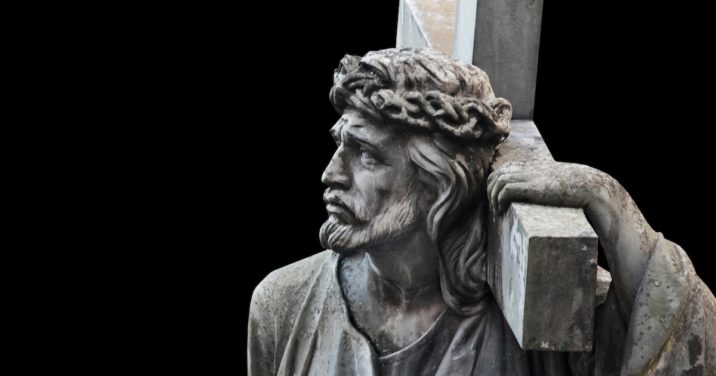Paul’s overriding interest is not in evil men who have done a wicked thing but in a good God who has done a gracious thing.
—Gerard S. Sloyan, The Crucifixion of Jesus: History, Myth, Faith
Like many, I was enthusiastic about Mel Gibson’s The Passion of the Christ when it premiered in 2004. My enthusiasm waned considerably about halfway through. I wasn’t turned off because of my weak stomach; I was dismayed at its emphasis. It’s my conviction that it wasn’t the brutality of the crucifixion that made it significant but rather the identity of the one crucified. The tragedy is that the Creator would allow himself to be humiliated, abused, and ultimately murdered at the hands of his creatures.
The one who would soon lay claim to all authority on heaven and earth (Matt 28:18) was betrayed with a gesture of familiarity and intimacy (Luke 22:47–53). Those who had sworn their allegiance fled and denied him (Matt 26:69–75). The mouth that had summed up the Law and the prophets with the admonition to treat others the way you desire to be treated (Matt 7:12) was silent as Jesus was beaten and mocked.
A prefect of Rome apathetically dismissed the supreme Sovereign of the universe (Matt 27:24). The world’s only true innocent was scourged and forced to carry the device for his own execution through town. The feet that had walked upon the raging sea and the hands that had only recently healed the sick and raised the dead were nailed to a rough piece of wood. Christ, who deserved to be elevated, was raised upon a cruel cross. And during history’s most unforgivable act, Jesus exemplified all his teaching in the prayer: “Forgive them, for they know not what they do.”
Good Friday, the passion of our Lord
Good Friday, the most tragically beautifully date on the Christian calendar, is set aside to remember the passion of our Lord. It’s tragic for what the Creator would suffer at the hands of the creature, and it’s beautiful for the work that was done on that dreadful day. As the writer of Hebrews put it, “We have been sanctified through the offering of the body of Jesus Christ once for all” (Heb 10:10).
It doesn’t really matter who was ultimately responsible for the crucifixion. On this day, we remember that we were all culpable—and are all beneficiaries.
And because of the humiliation endured that day, the head that wore a crown of thorns is now crowned with glory and honor (Heb 2:9), and any crown I receive will be laid at his nail-scarred feet.
Related articles
- What Is Holy Week? Ideas for Remembering Its Significance
- Jesus’ Final Week: A Closer Look
- 5 Suggestions for Observing Good Friday
- The Death Side of Life: Paul’s Scars and the Meaning of Good Friday
- What Good Friday Teaches Us about the Meaning of Suffering
Related resources
- Significance of the Resurrection (Course)
- Jesus and the Resurrection Bundle (3 courses)
- The Final Days of Jesus: The Most Important Week of the Most Important Person Who Ever Lived
- Why Call Friday Good? Spiritual Reflections for Lent and Holy Week
- History of the Holy Eastern Church (6 vols.)
- Popular Patristics Series, Part 1 (10 vols.)






